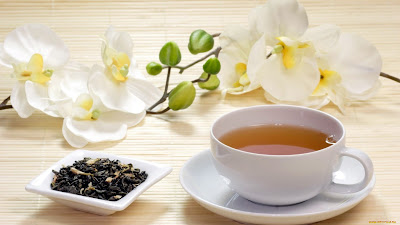Why is Jasmine Tea Considered the Epitome of Elegance?
In the world of beverages, few can claim the title of elegance quite like Jasmine Tea. With its delicate aroma and refined taste, this floral-infused concoction has captured the hearts of tea enthusiasts around the globe.
Let's dive into the enchanting realm of Jasmine Tea and discover what makes it the epitome of elegance.
Unveiling the Essence of Jasmine Tea
Jasmine tea, often hailed as the embodiment of sophistication, is a tea blend that combines the richness of traditional tea leaves with the ethereal essence of jasmine blossoms. The combination of these ingredients results in a tea that not only appeals to the senses but also perfectly captures the essence of elegance.
A Dance of Aromas
The allure of Jasmine Tea lies in its captivating fragrance. As you pour hot water over the tea leaves, the jasmine blossoms release their aromatic oils, infusing the tea with a subtle yet distinct floral scent. With every sip, you're enveloped in a fragrant embrace that transcends mere taste, transporting you to a world of grace and refinement.
The Visual Symphony
Elegance is not just about taste and aroma; it's also about presentation. The visual aspect of Jasmine Tea adds to its charm. As the jasmine flowers unfurl in the hot water, they create an exquisite display that's both calming and visually stunning. The delicate dance of petals is a treat for the eyes, elevating the tea-drinking experience to a higher level of
sophistication.
A Flavour that Dances on the Palate
Beyond its aromatic bouquet, Jasmine Tea boasts a flavour profile that's equally enchanting. The gentle infusion of jasmine, much like the delicate bergamot in Earl Grey tea, imparts a subtle sweetness to the tea, balancing the natural bitterness of the tea leaves. This harmonious blend of flavours, reminiscent of the soothing notes found in Earl Grey, caresses the palate, leaving behind a lingering sensation that's both refreshing and gratifying.
Jasmine Tea: A Ritual of Tranquillity
In a world that often moves at a frantic pace, Jasmine Tea invites us to slow down and savour the moment. The act of preparing and enjoying a cup of Jasmine Tea becomes a ritual of tranquillity—a quiet interlude where elegance meets mindfulness. It's a reminder that true elegance is found not only in grand gestures but also in the small, intentional moments that bring joy.
Cultural Significance
Jasmine Tea has a rich cultural history, particularly in regions, where it has been enjoyed for centuries. In some culture, jasmine symbolises beauty, grace, and purity. By partaking in Jasmine Tea, you're not only savouring a beverage; you're also immersing yourself in a tradition that spans generations—a tradition rooted in the pursuit of elegance.
Elevating Everyday Moments
Whether you're enjoying a quiet morning alone or hosting an intimate gathering with friends, Jasmine Tea and Earl Grey Tea have the remarkable ability to elevate everyday moments. It's a beverage that effortlessly adds a touch of sophistication to any occasion, making even the simplest of gatherings feel like a refined affair.
The fragrant aroma of jasmine flowers or the distinctive citrusy notes of bergamot in Earl Grey can transform an ordinary cup of tea into a sensory experience that engages both the palate and the senses.
So whether you're sipping on Jasmine Tea's delicate floral infusion or indulging in the bold flavours of Earl Grey, you're not just drinking tea – you're immersing yourself in a world of elegance and taste.
Closing Thoughts: Embracing the Elegance of Jasmine Tea
In a world where trends come and go, the enduring elegance of Jasmine Tea stands as a timeless testament to the beauty of simplicity. From its delicate aroma to its graceful flavour, every aspect of Jasmine Tea embodies the essence of refinement. So, the next time you find yourself seeking a moment of tranquillity and sophistication, reach for a cup of Jasmine Tea.
Allow its aroma to enchant you, its flavour to delight you, and its elegance to remind you that life's most precious moments are often found in the simplest of pleasures.




Comments
Post a Comment